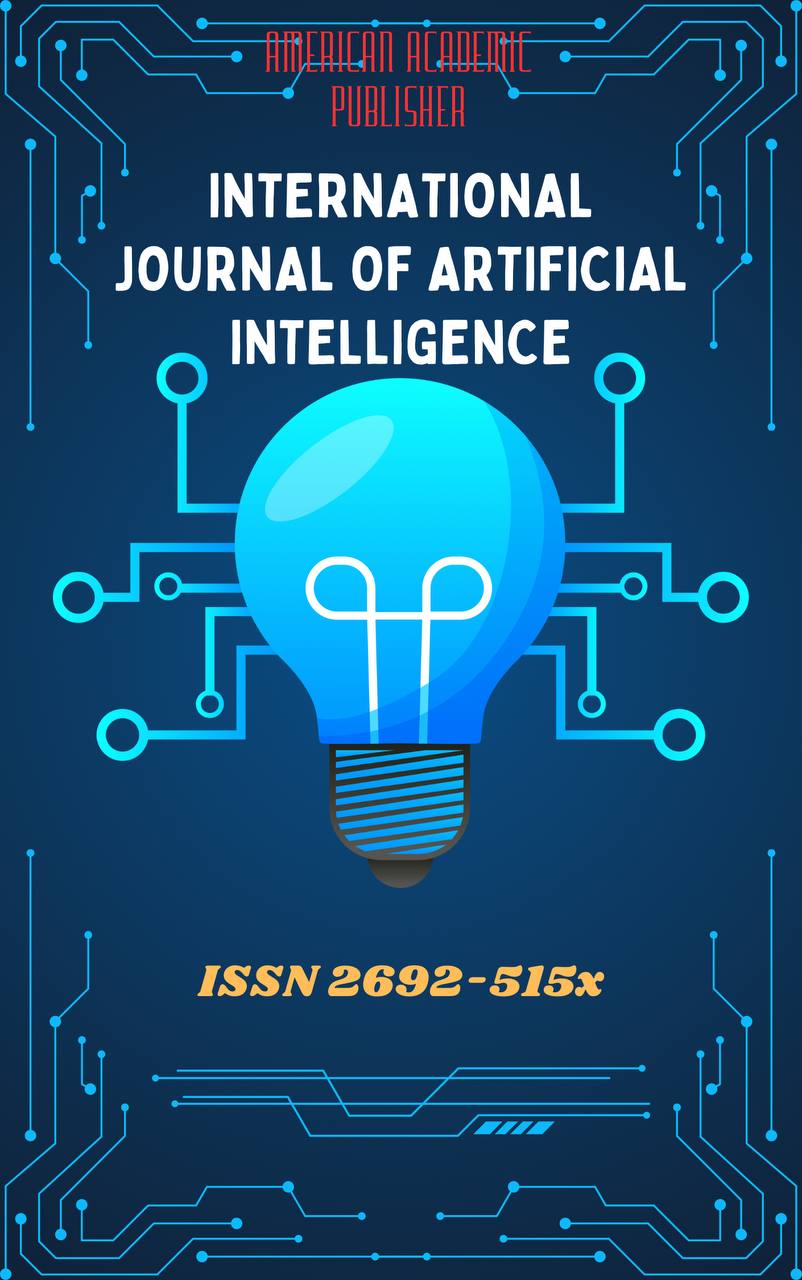 Articles
| Open Access |
Articles
| Open Access | THE ROLE OF ARTIFICIAL INTELLIGENCE IN EDUCATION: A SCIENTIFIC OVERVIEW
Karimova Shakhnoza Valievna,Siti Nor Amalina Ahmad Tajuddin , English Faculty, Samarkand State Institute of Foreign Languages, Uzbekistan/Faculty of Languages and Communication, Sultan Idris Education University (UPSI), MalaysiaAbstract
Artificial Intelligence (AI) is reshaping educational systems globally. From adaptive learning systems to intelligent tutoring and automated grading, AI offers personalized, efficient, and scalable educational experiences. This paper explores the current applications of AI in education, evaluates its uses, and discusses its challenges and future implications. This scientific review provides important findings with an up-to-date investigation of AI from 2015 to 2024. The findings indicate that while AI can significantly enhance learning outcomes and accessibility, it also introduces ethical, technical, and pedagogical challenges. Through this scientific review, several areas in the existing body of research were found to be underexplored, especially in relation to how artificial intelligence is being integrated into educational settings. These gaps point to valuable opportunities for future researchers to explore new directions, particularly the use of emerging AI tools in teaching and learning.
Keywords
Artificial Intelligence (AI); Intelligent Tutoring Systems; Adaptive Learning; Personalized Learning; Educational Chatbots.
References
Binns, R. (2018). Fairness in machine learning: Lessons from political philosophy. Proceedings of the 2018 Conference on Fairness, Accountability and Transparency, 149–159.
Burstein, J., Chodorow, M., & Leacock, C. (2013). Automated Essay Evaluation: The Criterion Online Writing Service. AI Magazine, 25(3), 27.
Dalalah, D., & Dalalah, O. M. (2023). The false positives and false negatives of generative AI detection tools in education and academic research: The case of ChatGPT. The International Journal of Management Education, 21(2), 100822.
Karimova, S. V. (2023). Innovative forms of organizing an English lesson. Science and Education, 4(6), 655-659.
Labadze, L., Grigolia, M., & Machaidze, L. (2023). Role of AI chatbots in education: systematic literature review. International Journal of Educational Technology in Higher Education, 20(1), 56.
Luckin, R., Holmes, W., Griffiths, M., & Forcier, L. B. (2016). Intelligence Unleashed: An Argument for AI in Education. Pearson.
Okonkwo, C. W., & Ade-Ibijola, A. (2021). Chatbots applications in education: A systematic review. Computers and Education: Artificial Intelligence, 2, 100033.
Pane, J. F., Steiner, E. D., Baird, M. D., & Hamilton, L. S. (2015). Continued Progress: Promising Evidence on Personalized Learning. RAND Corporation.
Popenici, S. A. D., & Kerr, S. (2017). Exploring the impact of artificial intelligence on teaching and learning in higher education. Research and Practice in Technology Enhanced Learning, 12(22), 1–13. https://doi.org/10.1186/s41039-017-0062-8.
Slade, S., & Prinsloo, P. (2013). Learning analytics: Ethical issues and dilemmas. American Behavioral Scientist, 57(10), 1510–1529.
Sun, Y., Sheng, D., Zhou, Z., & Wu, Y. (2024). AI hallucination: towards a comprehensive classification of distorted information in artificial intelligence-generated content. Humanities and Social Sciences Communications, 11(1), 1-14.
Tan, L. Y., Hu, S., Yeo, D. J., & Cheong, K. H. (2025). Artificial Intelligence-Enabled Adaptive Learning Platforms: A Review. Computers and Education: Artificial Intelligence, 100429.
Valievna, K. S. (2023). The use of interactive methods in teaching foreign languages. ASIA PACIFIC JOURNAL OF MARKETING & MANAGEMENT REVIEW ISSN: 2319-2836 Impact Factor: 8.071, 12(02), 34-38.
VanLehn, K. (2011). The Relative Effectiveness of Human Tutoring, Intelligent Tutoring Systems, and Other Tutoring Systems. Educational Psychologist, 46(4), 197–221.
Vieriu, A. M., & Petrea, G. (2025). The Impact of Artificial Intelligence (AI) on Students’ Academic Development. Education Sciences, 15(3), 343. https://doi.org/10.3390/educsci15030343
Walter, Y. (2024). Embracing the future of Artificial Intelligence in the classroom: the relevance of AI literacy, prompt engineering, and critical thinking in modern education. International Journal of Educational Technology in Higher Education, 21(1), 15.
Article Statistics
Downloads
Copyright License

This work is licensed under a Creative Commons Attribution 4.0 International License.

